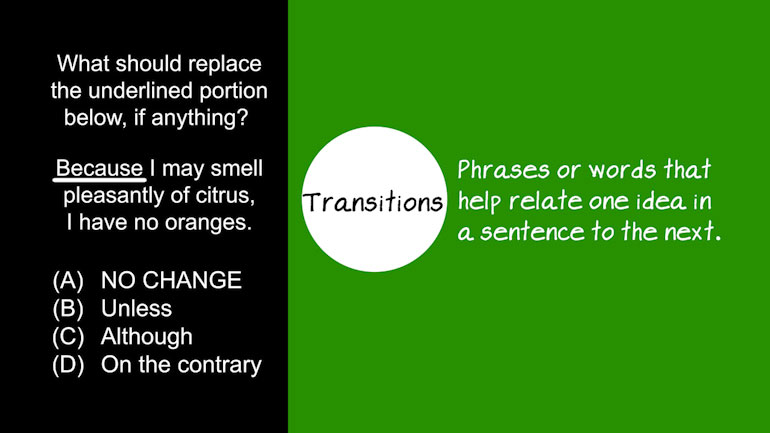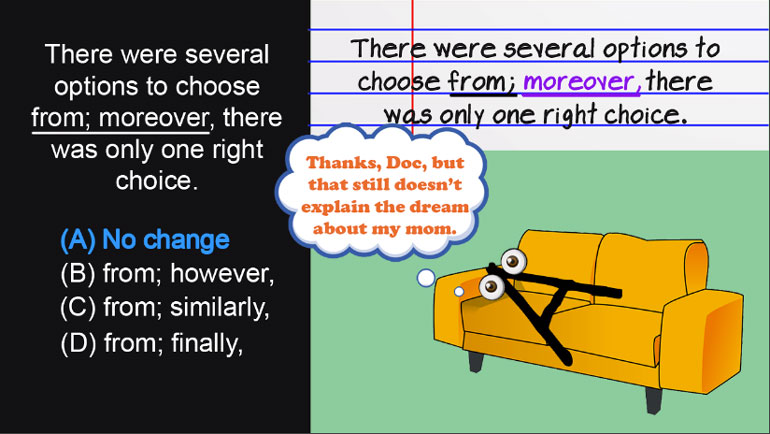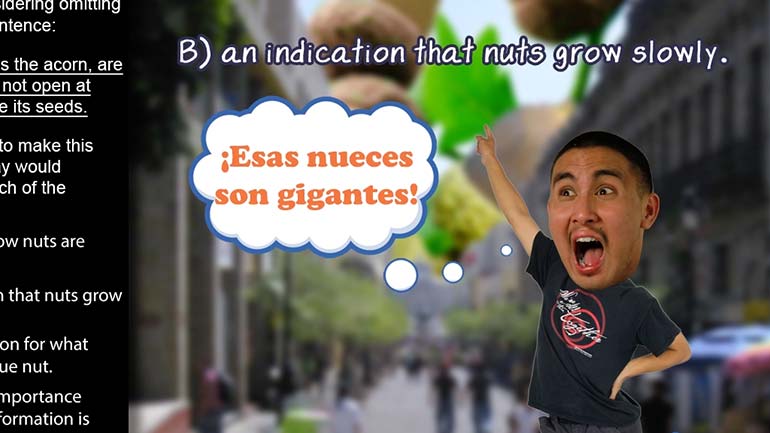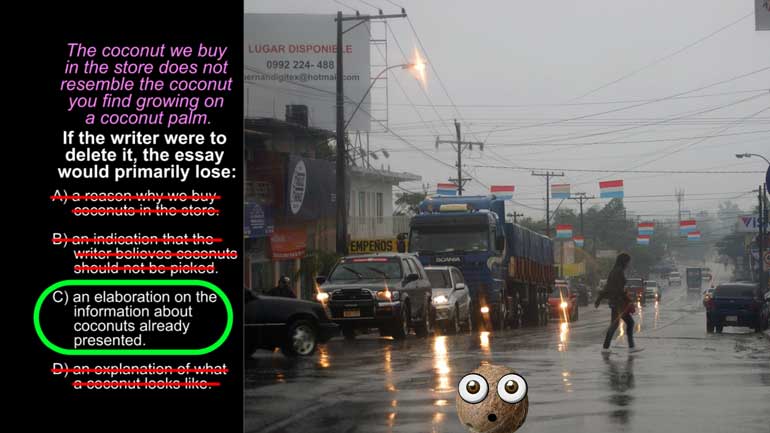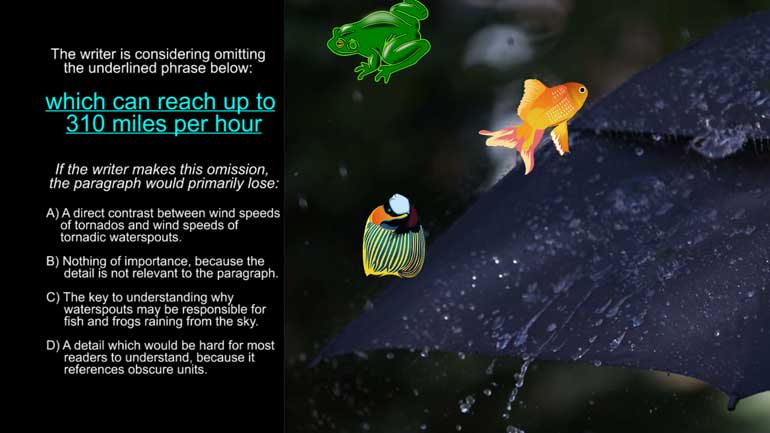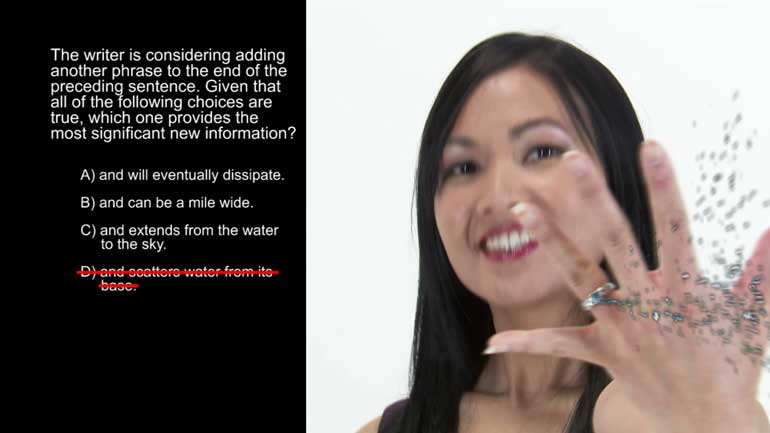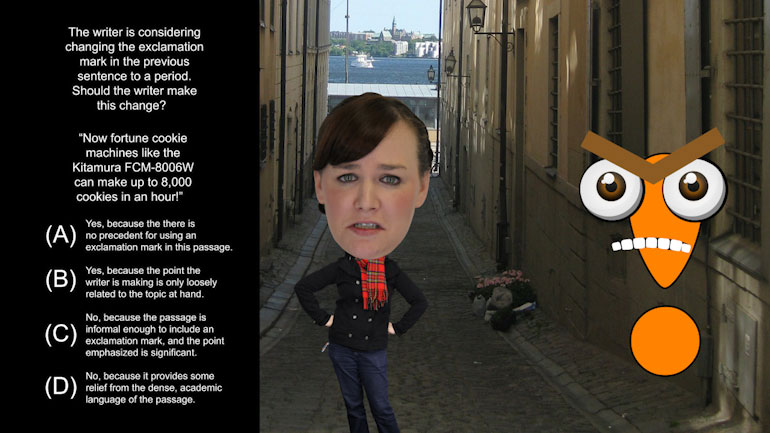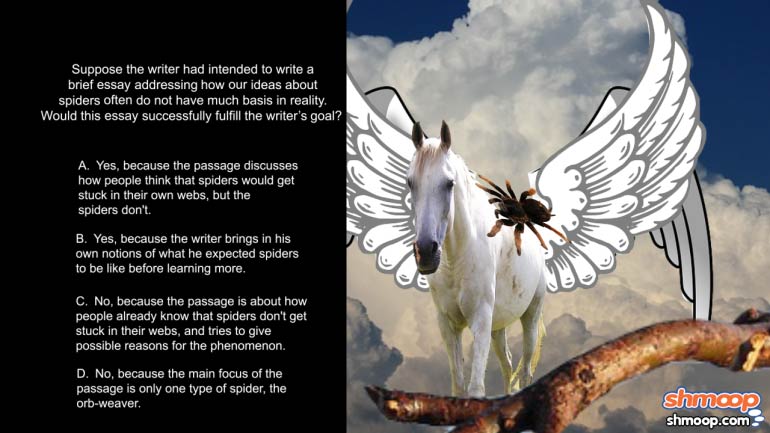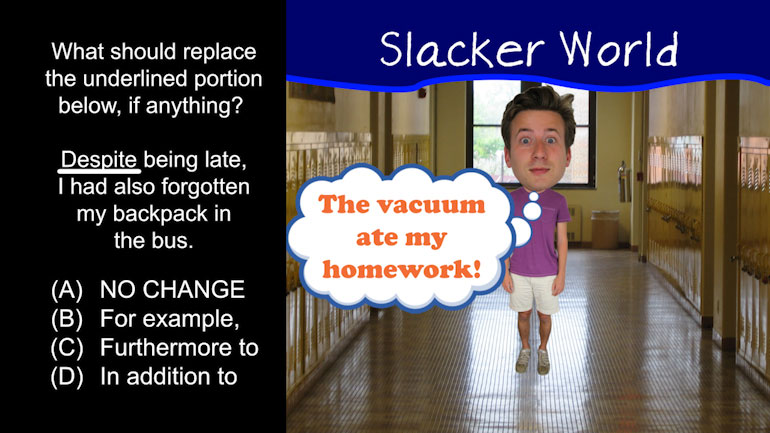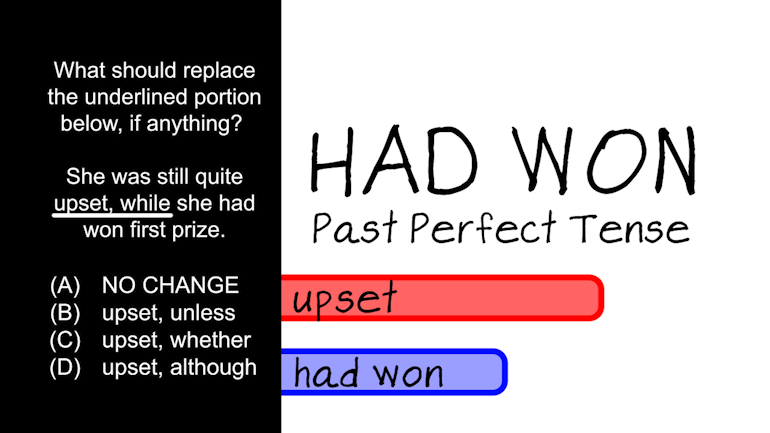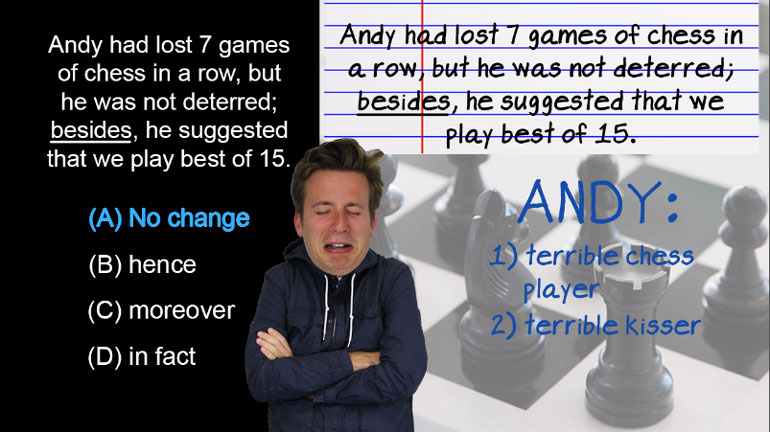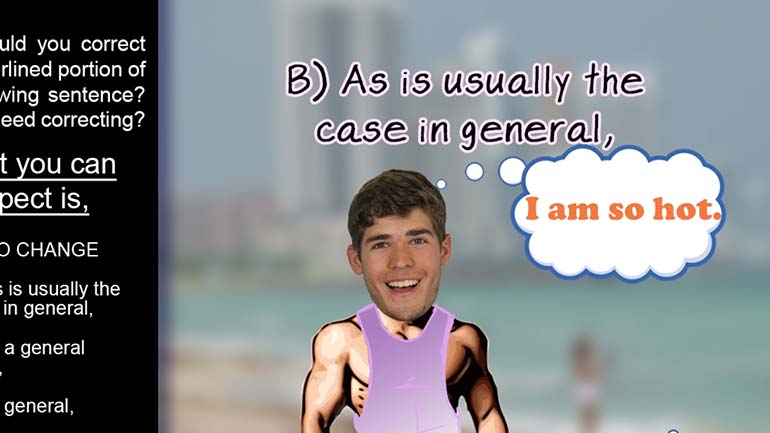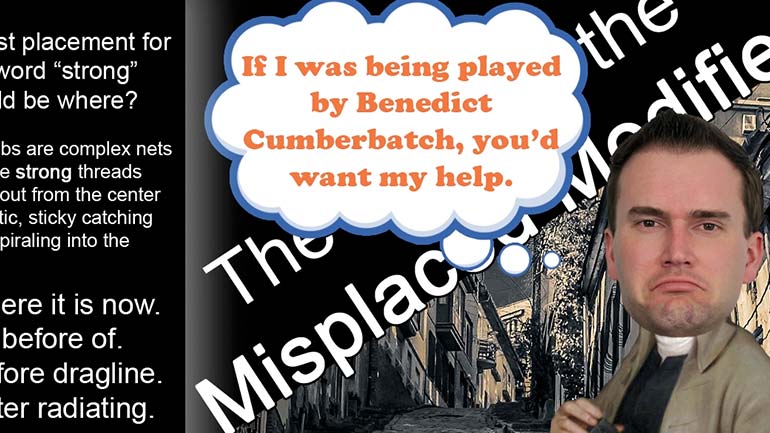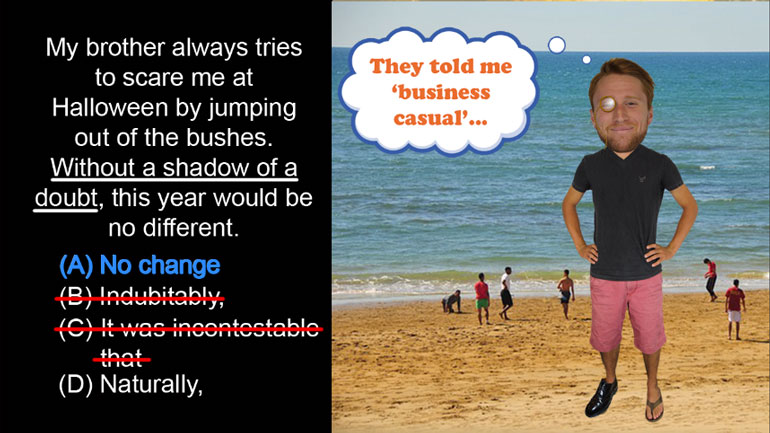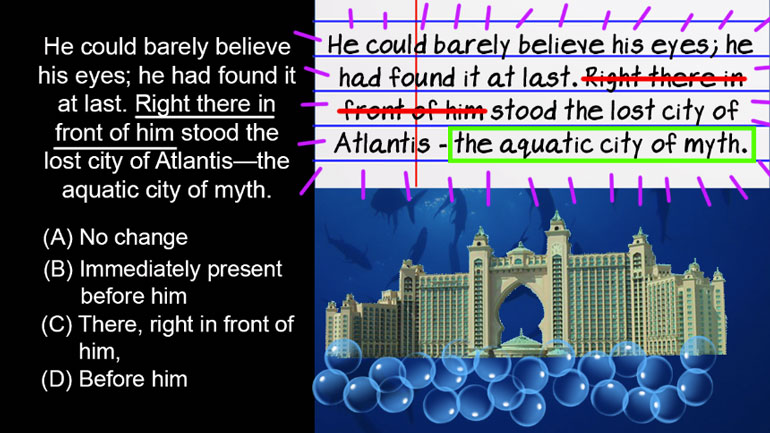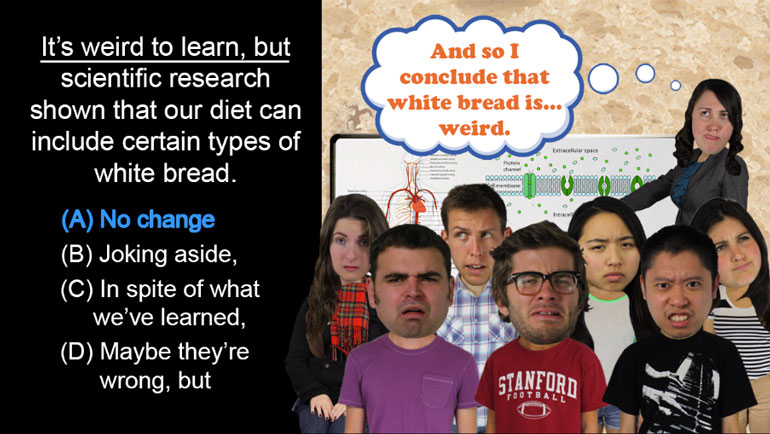ShmoopTube
Where Monty Python meets your 10th grade teacher.
Search Thousands of Shmoop Videos
Rhetorical Skills Videos 30 videos
ACT English: Organization Drill 1, Problem 1. Which transition works best?
ACT English: Organization Drill 1, Problem 5. Which is the correct transition word?
ACT English: Passage Drill Drill 1, Problem 14. Checking for redundant or irrelevant information.
ACT English 3.9 Passage Drill 207 Views
Share It!
Description:
ACT English: Passage Drill Drill 3, Problem 9. Which choice provides the most significant new information?
Transcript
- 00:03
Here's your Shmoop du jour, brought to you by storms of fish. Bad for fish, great for grizzly bears.
- 00:12
Check out the following passage...
- 00:20
The writer is considering adding another phrase to the end of the preceding sentence.
- 00:25
Given that all of the following choices are true, which one provides the most significant new information?
- 00:37
The correct answer will boast information that's found nowhere else in the passage.
Full Transcript
- 00:37
The correct answer will boast information that’s found nowhere else in the passage.
- 00:40
So all we have to do is scan through the passage and check to see which of these phrases is
- 00:43
redundant and which adds something new.
- 00:46
Choice (D) can go because the sentence, itself, mentions a "ring of spraying water."
- 00:50
We're no experts, but if this thing is spraying water, it's guaranteed to be scattering it as well.
- 00:54
Option (C) fills us in on how the funnels extend from the water to the sky.
- 00:58
It didn't need to bother, though, because the very next sentence tells us the same thing.
- 01:01
Too bad, (C), we've heard it all before.
- 01:03
Choice (A) is more of a challenge to eliminate. The word "dissipate" doesn't actually
- 01:07
appear anywhere in the passage. However, when something "dissipates" it disperses and
- 01:12
disappears. The molecules it's made of go their separate ways, and it is no more.
- 01:17
This goes along with the section in Paragraph 3 that describes waterspouts losing their
- 01:21
energy and raining objects back to the earth. The correct answer is (B), which gives us
- 01:25
new information by telling us that the "mature" waterspout can be a mile wide.
- 01:29
A mile wide? Maybe it should think about low fat frogs next time.
Related Videos
ACT English: Punctuation Drill 2, Problem 2. Where should the semi-colon be placed?
ACT English: Punctuation Drill 3, Problem 1. How should this sentence be changed so that it is grammatically correct?
ACT English: Punctuation Drill 3, Problem 2. How should we properly hyphenate the words in this sentence?
ACT English: Punctuation Drill 3, Problem 4. Which choice best formats this list of items?
ACT English: Punctuation Drill 2, Problem 1. Which choice of punctuation best completes the sentence?
